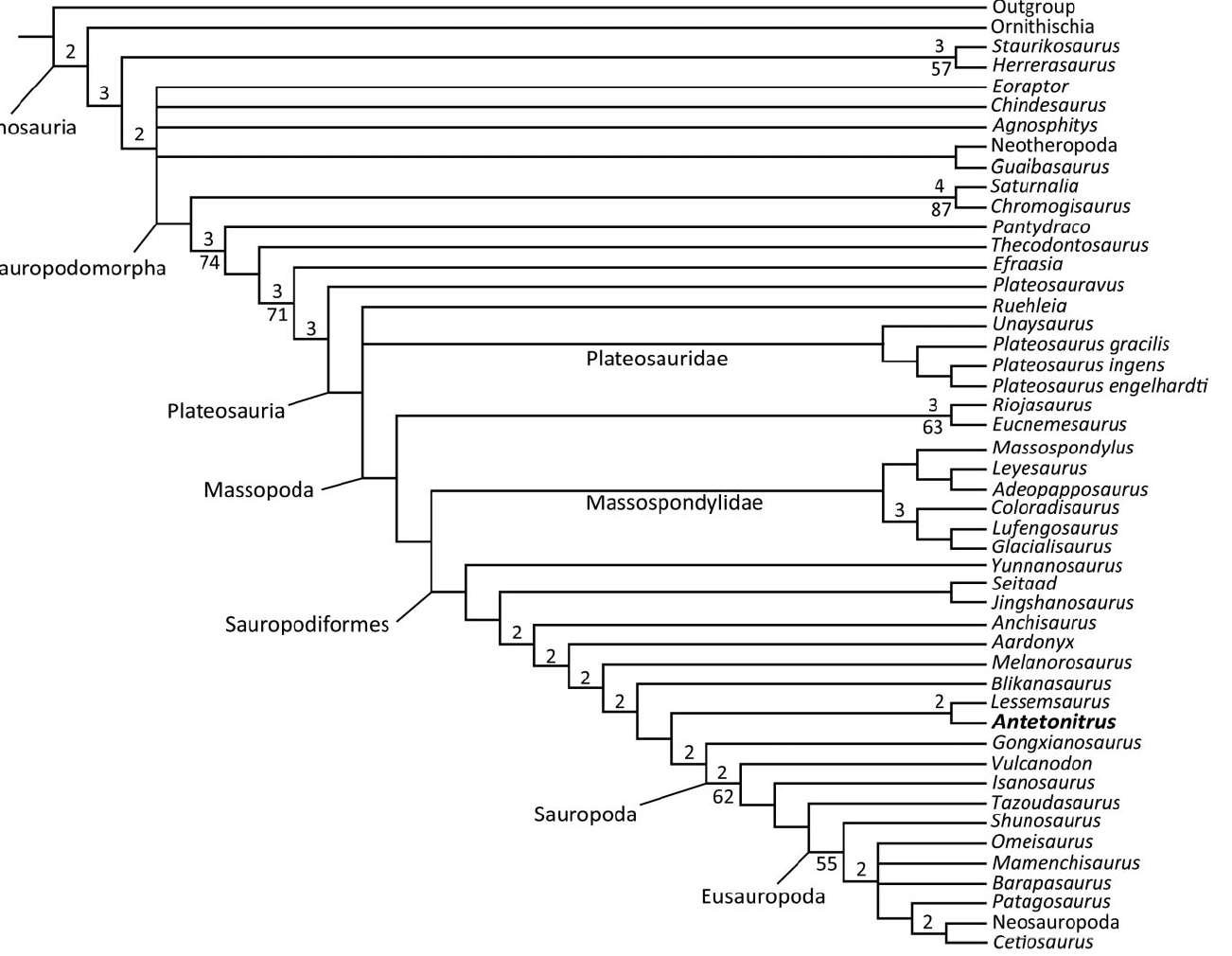The complete anatomy and phylogenetic relationships of Antetonitrus ingenipes (Sauropodiformes, Dinosauria): implications for the origins of Sauropoda
Authors:
McPhee et al
Abstract:
We present a comprehensive description and phylogenetic analysis of the important transitional sauropodomorph Antetonitrus ingenipes. New information sheds light on the stepwise acquisition of sauropod-like traits just prior to the Triassic/Jurassic boundary. Although the forelimb of Antetonitrus and other closely related sauropodomorph taxa retains the plesiomorphic morphology typical of a mobile grasping structure, the changes in the weight-bearing dynamics of both the musculature and the architecture of the hindlimb document the progressive shift towards a sauropodan form of graviportal locomotion. Nonetheless, the presence of hypertrophied muscle attachment sites in the femur of Antetonitrus suggests the retention of an intermediary form of facultative bipedalism. The term Sauropodiformes is adopted here and given a novel definition intended to capture those transitional sauropodomorph taxa occupying a contiguous position on the pectinate line towards Sauropoda. A re-examination of the biased distribution of Sauropodomorpha in the earliest Jurassic suggests the presence of genuine palaeo-environmental processes that may have excluded the large-bodied, graviportal taxa from participating in a number of Early Jurassic ecosystems.
Thursday, May 01, 2014
Antetonitrus ingenipes: A Sauropodiforme From Carnian/Rhaetian Triassic South Africa
Labels:
carnian,
dinosaurs,
fossils,
mesozoic,
nonavian dinosaurs,
paleontology,
rhaetian,
saurischians,
sauropodiformes,
sauropodomorphs,
sauropods,
Triassic
Subscribe to:
Post Comments (Atom)

No comments:
Post a Comment